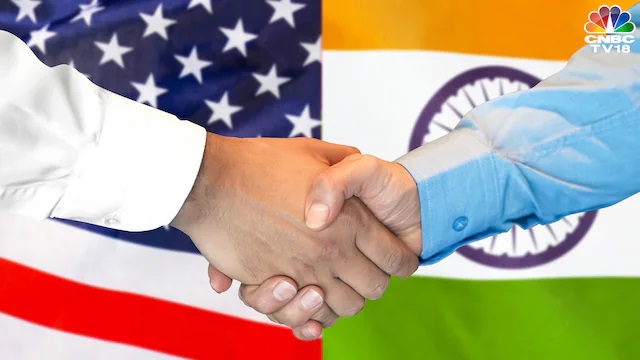
Washington presses for lower duties on sensitive agricultural products, facing firm resistance from New Delhi amidst July 9 deadline.
The ongoing trade negotiations between the United States and India are facing significant roadblocks, primarily due to contentious issues surrounding agricultural, dairy, and genetically modified (GM) produce. With a crucial July 9 deadline looming for an interim trade agreement, both nations are pushing for a deal, yet fundamental disagreements, particularly from India’s side, are creating a challenging impasse. For the international dairy community and global agribusiness analysts, this highlights the complex interplay of trade policy, food security, and national economic interests.
The United States is actively pushing for India to lower import duties on a range of American agricultural products, including maize, soybeans, apples, tree nuts, and crucially, dairy products. Washington aims to gain greater market access for its exports, seeking to balance a significant trade deficit with New Delhi. This aggressive stance underscores the U.S.’s focus on expanding export opportunities for its dairy sector and other agricultural commodities.
However, India is staunchly resisting these demands, primarily due to profound concerns about the potential adverse impact on its millions of small and marginal dairy farmers. India’s agricultural sector supports close to 46% of its population, and any agreement that jeopardizes their livelihoods or food security is politically sensitive. New Delhi has a long-standing policy of not opening up its dairy market in free trade pacts, citing differences in production standards, particularly concerning GM feeds used in American dairy farms, and cultural sensitivities around milk sources.
Furthermore, genetically modified (GM) crops present another significant bone of contention. While the U.S. is a global leader in GM agriculture and seeks market access for products like GM maize and soybeans, India maintains strict import controls on GM food items due to health concerns, environmental impacts, and strong domestic resistance. This divergence in GM policy significantly complicates efforts to finalize a comprehensive trade pact.
As the July 9 deadline approaches, the absence of a limited deal could see the reinstatement of a 26% reciprocal tariff on Indian goods, potentially disrupting trade flows. Despite the hardened stances, both sides continue to engage in intensive, round-the-clock negotiations. Finding a “middle ground” that respects India’s “red lines” on sensitive agricultural and dairy sectors while offering sufficient economic incentives to the U.S. remains the critical challenge for securing a mutually beneficial agreement.
Source: CNBCTV18: US insists, India resists lower duties on agricultural, dairy and GM produce: Govt Sources
You can now read the most important #news on #eDairyNews #Whatsapp channels!!!
🇮🇳 eDairy News ÍNDIA: https://whatsapp.com/channel/0029VaPidCcGpLHImBQk6x1F

















